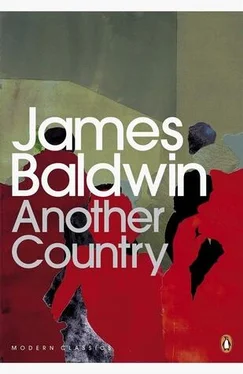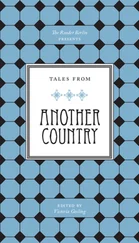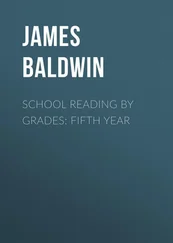She would say, “Oh, Vivaldo, why do you want to be so mean when you know how much I love you?” She would sound exasperated and very close to tears. And then, even though he knew that she was using him against himself, hope rose up hard in him, his throat became tight with pain, he willed away all his doubts. Perhaps she loved him, perhaps she did: but if she did, how was it, then, that they remained so locked away from one another? Perhaps it was he who did not know how to give, did not know how to love. Love was a country he knew nothing about. And he thought, very unwillingly, that perhaps he did not love her. Perhaps it was only because she was not white that he dared to bring her the offering of himself. Perhaps he had felt, somewhere, at the very bottom of himself, that she would not dare despise him.
And if this was what she suspected, well, then, her rage was bottomless and she would never be conquered by him.
He walked out of the bar into the streets again, not knowing what to do but knowing he could not go home. He wished he had a friend, a male friend, with whom he could talk; and this made him realize that, with the dubious exception of Rufus, he had never had a friend in his life. He thought of calling Eric, but Eric had been away too long. He no longer knew anything about Eric’s life and tonight he did not want to know.
So he walked. He passed the great livid scar of Forty-second Street, knowing that he could not endure sitting through a movie tonight; and on, down lonely Sixth Avenue, until he came to the Village. Again, he thought of calling Eric and again dismissed it. He walked eastward to the park; there were no singers there tonight, only shadows in the shadows of the trees; and a policeman coming into the park as he walked out of it. He walked along MacDougal Street. Here were the black-and-white couples, defiantly white, flamboyantly black; and the Italians watched them, hating them, hating, in fact, all the Villagers, who gave their streets a bad name. The Italians, after all merely wished to be accepted as decent Americans and probably could not be blamed for feeling that they might have had an easier time of it if they had not been afflicted with so many Jews and junkies and drunkards and queers and spades. Vivaldo peered into the bars and coffee houses, half-hoping to see a familiar and bearable face. But there were only the rat-faced boys, with beards, and the infantile, shapeless girls, with the long hair.
“How’re you and your spade chick making it?”
He turned, and it was Jane. She was drunk and with an uptown, seersucker type, who probably worked in advertising.
He stared at her and she said, quickly, with a laugh, “Oh, now, don’t get mad, I was only teasing you. Don’t old girl friends have some rights?” And to the man beside her, she said, “This is an old friend of mine, Vivaldo Moore. And this is Dick Lincoln.”
Vivaldo and Dick Lincoln acknowledged each other with brief, constrained nods.
“How are you, Jane?” Vivaldo asked, politely; beginning to move, at the same time, in what he hoped was not their direction.
But they, naturally, began to move with him.
“Oh, I’m fine,” she said. “I seem to have made an incredible recovery—”
“Have you been ill?”
She looked at him. “Yes, as a matter of fact. Nerves. Due to a love affair that didn’t work out.”
“Someone I know?”
She laughed, breathily. “You bastard.”
“It’s just that I’m terribly accustomed to your dramatics. But I’m glad that everything’s working out for you now.”
“Oh, everything’s fine now,” she said, and made a grotesquely girlish little skip, holding heavily onto Lincoln’s hand. “Dick doesn’t care much about soul-searching, but he’s good at what he cares about.” The man she thus described moved stiffly beside her, his face a ruddy mask of uncertainty, clearly determined to do the right thing, whatever the right thing might prove to be.
“Come and have a drink with us,” Jane said. They were standing on the corner, in the lights spilling outward from a bar. The light illumined and horribly distorted her face, so that her eyes looked like coals of fire and her mouth stretched joylessly back upon the gums. “For old times’ sake.”
“No, thank you,” he said. “I’m going on home. I’ve had a long, hard day.”
“Rushing home to your chick?”
“Good thing to rush home to, if you’ve got one,” Dick Lincoln said, putting his pink, nerveless hand on Jane’s shoulder.
Somehow, she bore it; but not without another girlish twitch. She said, “Vivaldo’s got a great chick.” She turned to Dick Lincoln. “I bet you think you’re a liberal,” she said, “but this boy, baby, he’s miles ahead of you. He’s miles ahead of me; why, if I was as liberal as my friend, Vivaldo, here”—she laughed; a very tall Negro boy passed them, looking at them briefly—“why, I wouldn’t be with you, you poor white slob. I’d be with the biggest, blackest buck I could find!” Vivaldo felt his skin prickling, Dick Lincoln blushed. Jane laughed, and Vivaldo realized that others, both black and white, were watching them. “Maybe I should have gone with her brother,” Jane said, “would you have liked me better if I had? Or were you going with him, too? Can’t ever tell about a liberal,” and she turned her face, laughing, into Dick Lincoln’s shoulder.
Lincoln stared helplessly into Vivaldo’s eyes. “She’s all yours, mister,” Vivaldo said, and at this Jane looked up at him, not laughing at all, her face livid, and old with rage. And all his anger left him at once.
“So long,” he said, and turned away. He wanted to leave before Jane precipitated a race riot. And he also realized that he had become the focus of two very different kinds of attention. The blacks now suspected him of being an ally — though not a friend, never a friend! — and the whites, particularly the neighborhood Italians, now knew that he could not be trusted. “Hurry home,” Jane called behind him, “hurry home! Is it true that they’ve got hotter blood than ours? Is her blood hotter than mine?” And laughter rang down the street behind this call, the suppressed, bawdy laughter of the Italians — for, after all, Vivaldo was one of them, and a male, and apparently, a gifted one — and the delighted, vindictive laughter of the Negroes. For a moment, behind him, they were almost united — but then, each, hearing the other’s laughter, choked their laughter off. The Italians heard the laughter of black men; the black men remembered that it was a black girl Vivaldo was screwing.
He crossed the Avenue. He wanted to go home and he wanted to eat and he wanted to get drunk and, also, perhaps out of simple fury, he wanted to get laid — but he did not feel that anything good would happen to him tonight. And he felt that if he were a real writer, he would simply go home and work and throw everything else out of his mind, as Balzac had done and Proust and Joyce and James and Faulkner. But perhaps they had never held in their minds the nameless things he held in his. He felt a very peculiar, a deadly resignation: he knew that he would not go home until it was too late for him to go anywhere else, or until Ida answered the phone. Ida: and he felt an eerie premonition, as though he were old, walking years from now through familiar streets where no one knew or noticed him, thinking of his lost love, and wondering, Where is she now? Where is she now? He passed the movie theater and the tough boys and tough men who always stood outside it. It was ten o’clock. He turned west on Waverly Place and walked to a crowded bar where he could get a hamburger. He forced himself to have a hamburger and a beer before he called his apartment again. There was no answer. He went back to the bar and ordered a whiskey and realized that he was running out of money. If he were going to keep on drinking he would have to go to Benno’s, where he had a tab.
Читать дальше












